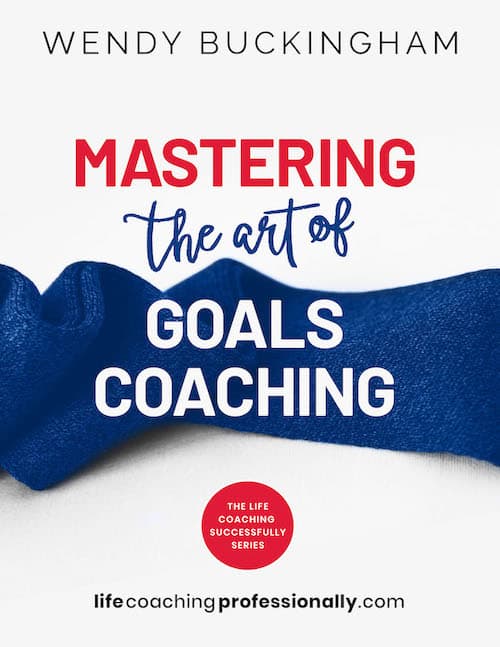- Life Coaching
- Discover Your Niche
- Coaching Groups
Life Coaching Groups To Leverage Your Skills And Income
Page Summary
Creating targeted life coaching groups, as well as offering one-on-one coaching, is a an opportunity to build a vibrant and diversified practice with programs that are affordable to all.
Quick Links
I may receive commissions at no cost to you. I participate in the Amazon Services LLC Associates Program. More...
The Benefits Of Group Coaching
Life coaching groups of clients, whether in person or online has a lot going for it for both the client and the coachees in the group.

It's a great way to leverage your coaching skills and time and be able to offer an affordable option to those clients on a tight budget. It can also be a lot of fun as the group dynamic develops!
When facilitating a group life coaching session, as well as coaching input, you are there to act as a sounding board, reflector and adviser and to hold the members of the group accountable for their intentions and actions.
This type of coaching may not follow the strict definitions of life coaching but it is an accepted and viable way of effectively serving more than one client at a time.
The group can be a random collection of clients or a group of people in a specific industry or with similar interests and goals.
You can charge a lot less to each member of the group, yet in a one hour group session still make a lot more than you would coaching one person for a single session.
And there is always the possibility that someone in the group will 'upgrade' to one -on-one coaching!
What to charge for group coaching
This is a frequently asked question and one that can have many answers and will depend on your niche and demographic. For business and corporate groups you will be able to charge more than for say a community group or a group from a low income demographic.
One way is to take your hourly rate and multiply it by the number of group sessions you will be giving, allowing for preparation and follow-up time.
Or if you are quoting for a group you have been asked to present, you could charge a base rate for a given number of participants, say 10, and extra for each participant over that number.
The basic guidelines in how to charge your Life Coaching Fees may help you find what works best for your groups.
Coaching Groups With A Specific Interest
Life coaching groups can be made up by people with a similar background or interest to address relevant issues. This interest might be based around a career, professional or industry theme.
The coach sets the context and format for the session and the members of the group contribute the subject matter. As one person raises an issue, another will have a question or a suggestion.
For example, a group of health care professionals may meet with the coach once a month and share the handling of issues on a predetermined agenda.
And again although it is not strictly life coaching, those issues such as relationship, communication and confidence will invariably come up and the coach can guide the participants to solutions as well as making sure there is no bullying or telling rather than advising.
Your background or coaching niche can also help with your credibility in coaching special interest groups.
For instance, if you had a background in accounting, you would be well qualified to coach a group of accountants. Mentor coaching of new coaches by experienced coaches is often done very successfully in groups as well.
Some possible niches for group work that you could explore are:
- Multi level Marketing
- Solo business people in the same industry
- Life Coaching Goals Groups
- Retirement
- Creativity
- Health and fitness
Goal Focused Life Coaching Groups
In this model, the coach puts
together a group of clients, either new or existing, to meet for a series of sessions. The members of the group may be a team, such as a sports team or work team, or be completely unrelated.
The first group life coaching session usually begins with introductions and then the coach facilitating the
goal setting process
for each person. Sometimes this may even have been established with individuals by phone or email before the event to speed up the process.
Subsequent sessions feature 'checking in' on progress handling any issues and maybe determining future actions. All group members will probably become active in the process, giving input, perspective and group support.
My book Mastering the Art of Goals Coaching is a complete goal setting, planning and achieving template and can be a handy reference to use in goals groups. Have a look at the preview and you'll see how useful this book could be for you.
Remote Group Coaching Using Zoom, Skype Or Phone
You don't need to meet face to face with your group. Remote coaching allows you to broaden your group locaction base to those who you cannot get together face to face.
I once ran a remote group to mentor new coaches who lived interstate or in another country by telephone. It was successful and hugely rewarding. I've also run my Goals Clinics this way.
If you want to run your group sessions by telephone rather than Zoom or Skype, check Google for companies that still offer telephoning conferencing.
The rules and tips for remote coaching are pretty much the same as for face to face though the traffic control can be a little more challenging if by phone or Zoom or Skype with the video turned off you can't see who wants to speak next. (Sometimes poor reception can be improved if the video is turned off)
So have a list in front of you of who is on the line and make sure everybody gets a chance to contribute. Even make a point of asking a quiet participant for their input, but without pressure.
It's also important to acknowledge each person as they come online at the beginning of the session so everybody knows who is there. Also asking people to say their name before they speak and to use their mute button when they are not talking is good remote group etiquette.
On this page I have lots more information and tips on mastering remote phone and online life coaching with a one-on-one client.
Six Tips For Successful Life Coaching Group Sessions
1. Start off with introductions
It may sound obvious but I've been in a group where the leader plunged straight into the content without allowing for introductions. Asking each participant to introduce themselves and say where they are from and what they are hoping to achieve from participating in the group can be a great bonding and trust process.
2. Set the context and guidelines for the group
Just as important as introductions is letting the participants know how the group will work i.e number and length of sessions, purpose of the group.
Also in your first group session establish firm guidelines about punctuality, confidentiality, permission to give feedback, and how feedback is to be delivered. Inappropriate input from one member of the group to another is something to be watched out for and controlled.
3. Allow time for trust to build
If the life coaching group is drawn from strangers (and often even if they know each other) they may have to develop trust over a couple of sessions before any of the real issues are going to emerge.
4. Traffic control
You need to be able to strongly facilitate the sessions so that everybody has the opportunity to participate - not just the talkative sharers. Allow enough time and space to deal with a particular participant's pressing issue, while making sure no-one hogs all the attention!
5. Deep issues that need individual handling
Whilst group life coaching is ideal for checking progress on goals or publicly stated action steps, it can sometimes be difficult if there is a need to explore a deeper issue that comes up for a participant.
When this happens you may decide to put the issue on hold in the group and offer a brief private conversation to deal with the issue. In that conversation, if appropriate, give the participant the opportunity to convert to one-on-one coaching.
6. Follow up for group coaching
A couple of weeks after the last session do a follow up phone call or email to see how each participant is going. Make it personal mentioning something you remember about them from your notes. This is great PR and can lead to more one-on-one coaching.
What to charge for group coaching
Knowing what to charge for group coaching is often quite a dilemma. Many coaches find this or a similar formula works.
Say you are providing a series of six one-on-one coaching sessions for $1200. For six group coaching sessions you could charge each participant 25% ($300) earning yourself $1800. In this scenario you need to aim for more than four in the group or you will only earn the same as coaching one-on-one.
Of course you can vary the percentage with whatever feels right for you with what you are offering the group. For instance if your group package includes some individual coaching or other valuable add on you may feel justified in charging a higher percentage of your one on one fee.
The thing to remember is that in certain coaching situations and with the right structure, group coaching can be just as valuable as one on one work.



